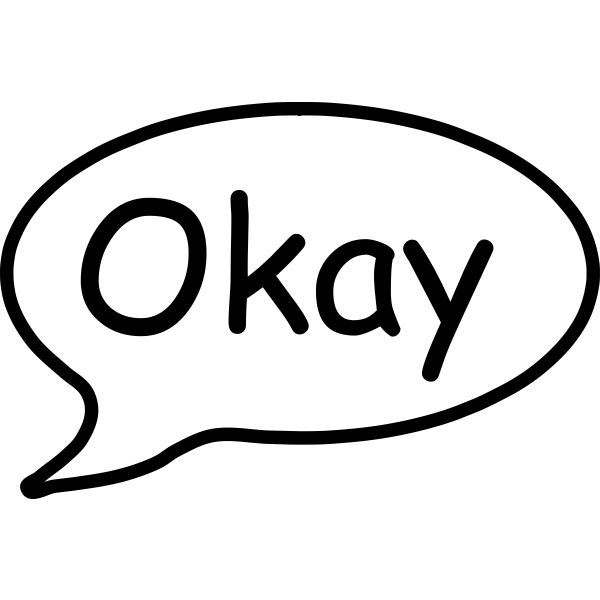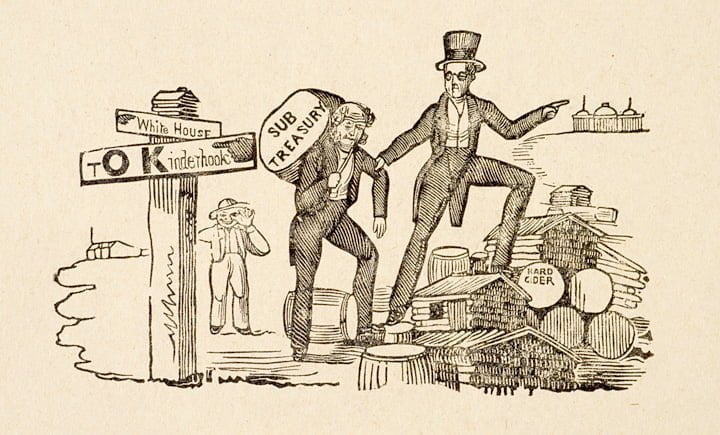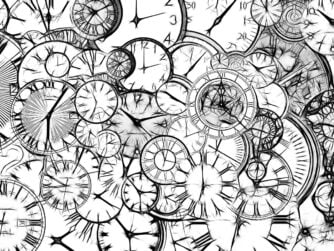Voice 1
Welcome to Spotlight. I’m Liz Waid.
Voice 2
And I’m Colin Lowther. Spotlight uses a special English method of broadcasting. It is easier for people to understand, no matter where in the world they live.
Voice 1
Does your language use any English words? Yes? No? Hello? Languages often borrow words from each other. English speakers use many words that have come from other languages. For example, you may hear an English speaker say something like this:
Voice 3
“I cannot believe I made that faux pas in front of everyone!”
Voice 1
The words “faux pas” mean a social mistake. They are French. But many English speakers use them.
Voice 2
Another example is the word “prima donna.” This phrase is Italian. It means “first lady.” English speakers use it to speak about someone who only thinks about themselves.
Voice 1
Many languages also use English words. For example, they use the words computer, internet and email. However, none of these are the most commonly used English word. Do you know what it is? Okay. Yes, the word is okay. Today’s Spotlight is on the word okay.

Voice 2
The word okay is an informal, spoken word. You will almost never find it in formal speeches, news media, or books. But it is one of the most common English words. It is also one of the most common English exports from the United States! English professor Allan Metcalfe wrote a book about the word okay. He told CBS News,
Voice 5
“There is no other word that is as widely recognized throughout the whole world. No other American English word has had so much success like that.”
Voice 1
In a general way, okay signals approval, acceptance, or agreement. People can use it in many different ways. Here are some ways to use the word okay.
Voice 2
First, okay can be an adjective or an adverb. It can describe an act or a thing. In this way, it means “all right” or “fine.”
Voice 3
“Are you okay?”
Voice 2
Here is another example:
Voice 4
“I hope the children are okay while we are gone.”
Voice 2
It can also mean fine, but not so great.
Voice 3
“Did you enjoy the dinner last night?”
Voice 4
“It was okay.”
Voice 1
Okay can also be an act or a thing – a verb or a noun.
Voice 3
“Did your boss give you the time off that you asked for?”
Voice 4
“Yes, she okayed it.”
Voice 2
Okay is also common as an interjection. It can appear suddenly, on its own. In this way, it can simply mean “yes” or “sure.”
Voice 3
“Can you please wash those dishes?”
Voice 4
“Okay.”
Voice 1
Or it can signal that people need to attend.
Voice 3
“Okay. Time to begin, please.”
Voice 2
It can also mean “enough!”
Voice 4
“OKAY! Please stop now!”
Voice 2
Okay, we are done with this part anyway.
Voice 1
You have already heard how many different meanings the word okay has. But did you know that the meaning also changes depending on how you say it? The tone of a person’s voice makes a difference. The meaning can change no matter how you use it. For example, the sentence “It was okay” could be positive or negative.
Voice 3
“How was the show?”
Voice 4
“It was okay.”
Voice 1
What do you think this person meant? What about this next example?
Voice 3
“How was the show?”
Voice 4
“It was okay!”
Voice 2
The first answer says that the person was not really satisfied, but he could not think of something bad to say. The second answer says that the person was satisfied. A person’s tone also changes the meaning of the word okay as an interjection.
Voice 4
“I think we should visit your brother tonight. Okay?”
Voice 3
“Okay.”
Voice 2
The first person used okay to ask for agreement. The second person used okay to express questioning, or doubt. Okay is a small word, but it has many different uses!

Voice 1
So where did this confusing, complex word come from? People debate the origin of the word okay. The earliest record in print was in 1839 in the city of Boston. At the time, it was popular to use groups of letters to signal words. It was also common to spell the words incorrectly, using the wrong letters, as a joke. A Boston newspaper used the letters “O” and “K” to mean “oll korrect.” The O meant “all”, and the K meant “correct”.
Voice 2
Around the same time, US President Martin Van Buren began to use the word. He was the president, and he was trying to get elected again. His political party used the saying, “Vote for OK.” Van Buren was from a town in New York called Kinderhook. In this case, he used the letters OK to mean “Old Kinderhook.” The saying tried to give the message that Old Kinderhook was “all correct.” Van Buren lost the election. But many language experts think that the election saying helped to make “OK” a common word.

Voice 1
This explanation may also explain the unusual spelling of the word okay. People can write okay in two ways. They can write the word using just the letters “O” and “K”. Or they can write it this way: o-k-a-y. And both ways are correct!
Voice 2
Other language experts think the word has a Native American origin. The Choctaw people are one of many Native American groups. The Choctaw language has a word “okeh.” This word means “it is so.” This is almost the same meaning as today’s word “okay.” As early as 1825, Christian Bible translators used “okeh” in their Choctaw Bible translations. In the 20th century, US President Woodrow Wilson used the Choctaw language to sign documents as “okeh.”
Voice 1
Other language experts say that okay came from West Africa. Some West African languages have interjection words that sound similar to okay. For example, the word “waw-kay” in the Bantu and Wolof languages, or “o ke” in the Mande language. These words also commonly signal agreement. West African people were brought to the United States as slaves. The theory is that African slaves used these words when speaking English. After a time, the use spread to the rest of the English-speaking population.
Voice 2
No one knows which story is true. But today, okay is now one of the most common words in English. People use it all the time, everywhere. Okay is now an international word. But Professor Metcalf believes that it expresses a cultural value of the United States. He told CBS News,
Voice 5
“It is strong, it is simple. People from the United States do not like complex ways of life. And ‘okay’ is about as short and simple as you can get.”
Voice 1
OK. So, after hearing this program, are you okay with Spotlight? Or is it just… okay? Can you give your okay to our programs? Or would you use another word? We are okay if you are okay! Okay?
Voice 2
Do you use the work OK? Do you use words from other languages in your language? Tell us about your experiences. You can email us at contact@spotlightenglish.com. You can also find us on YouTube, Facebook, Instagram, and Twitter.
Voice 1
The writer of this program was Jen Hawkins. The producer was Michio Ozaki. The voices you heard were from the United States and the United Kingdom. All quotes were adapted for this program and voiced by Spotlight. You can listen to this program again, and read it, on the internet at www.spotlightenglish.com. This program is called, ‘How to Use the Word OK’.
Voice 2
Visit our website to download our free official app for Android and Apple devices. We hope you can join us again for the next Spotlight program. Goodbye.
Question:
Do you use the word okay? Try using it in a sentence below!








Absolutely yes, Many Arab countries use Okay all time , especially if someone agrees or if you are satisfied or when someone orders his family and friends for example let’s go outside? Ok, let’s go . another example When mother orders his son :‘do your homework? his son replies her : Ok mum.
Thanks so much for this information about the word of Ok, I like it.
yes we use this word in Arab countries when I order my friend for went to a restaurant or play football
Im so ok with Spotlight
I love this program ,Thanks for all the people who works in this show Ok
Ok
I give a lot of okay to your programs. Jen Hawkins said: We are okay if you are okay! Okay? Ok, ok, I too say: I’m okay if you are okay! Okay?
I don’t think OK’story that talks it is a wrong spelling of (oll korect) is right, because most popular expression in America previously and nowadays to express about feeling of satisfied is (All Right) not (All correct). Maybe the presedent story is OK but i don’t know ♂️
I’m very ok with your program
I think this program is interesting and useful. I have learned from it so much. Thank you for your supporting
I agree about this word, is very useful and easy to use in any context. And I think is one of the words that like me.
I am okay today
Thank you for this amazing program, I’m okay with spotlight. Even in French we use this word.
Everyone uses the word OK even in Arabic Greetings from Algeria
Actually I use the word ok daily it’s become part of my own language
OK
it’s OKAY to be normal and realistic
it’s OKAY to stay home and not hanging out with your friends
it’s OKAY to control your anger
it’s OKAY to listen to your mother and be a good son
yes we use it alot her in KSA
Thanks
Yes, of course we use this word Greetings from Iraq
Yes you are ok
seriously I’m thankful because you are help us to learn English
thank you for those episodes
It is okey
Your english podcast is just Okay!
I’m ok with spotlight , Thanks
Yes. Almost countries use the world ok specially the Arab countries in many ways and many kinds of people.. It is really a strong world..and honestly I am OK with spotlight
Without any doubt i use the word “ok” every single day and my ok to spotlight is the first ok ….. we are Arab also use it.
I am very happy to listen to spotlight lessons
okay !
Okay
Laughing so hard rn oml this is so common and way too practical that I didn’t expect to write a programe on okay, but I really enjoyed knowing the origines there’s alot of possibilities there but I wonder if they actually have backed up and concrete proof, I feel like it’s all made up like someone dreamt abt it and believed so they came out next day to announce how they imagined the word okay was created lol
Ok this is useful for me as a student of english language
Spotlight english is one my favorite program, I want to thank all people working in it, so it will be no other than a thankful OOOOOOK
of course we do use the word OK like all other people in the world, and like-minded we do have a lot of foreign words in our language especially french words which is due to the long period and the policy of ignorance the occupier had been appliying for 132 years
Or is it just… okay.. you are fun podcast thanks your listing
Thank you spotlight for this program. We are OK in listening these interesting items full of huge amount of information. We are OK in every hearing to your programs. OK, i see that this Word and her using are very popular in a lot of languages and it is present in our language “Arab” as well. We are OK in using it in our discussions, speaches and our thinking. Does my answer show you my positive using to this Word, ok, or not ?
Actually, I use the word OK for sometimes such as when my mother asks me any things like clean the house, wash the clothes or prepare a food I say to her ok mum. Moreover, when someone instructions from my family or friends for instance, let’s go to prayer? it’s ok. Finally, In my country Algeria we use the word ok a lot of for many decisions.
Yes I do for exammple : Pedro are you ok.
Yes, I usually use it.Okay is a very common word in our an informal speaking.
yes, okay. My mother language is Vietnamese, but i often use OK.
I have benefited from all of this, and finally, thank you. I have a suggestion. I want to give people advice, whether financial, social, or psychological. We will discuss our differences. In any case, we will spend a wonderful time and talk about all the suggestions that come to you and me. You liked the idea. Reply. Thank you for your time.
I’m okay with spotlight.
I’m thankful because you are help us to learn English.
I’m from Saudi Arabia and we use “ok” too much ! It is like a basic word.
We use it all the time.
For example :
– please can you help me?
– Ok!
Or
– what you think about my outfit?
– it is ok:)
Absolutely yes we use the word Ok on all our conversations to agree, when you want other guy to shut up when you want to finish a call… etc. this Word takes many meanings. I’m ok with spot light it’s very helpful
In my country, we also used OK in our daily life.
Thank you spotlight for this program, I’m ok with you ❤️
I’m very ok with your program
It’s very good
I am ok with spot light
I agree with that, we use the word “Okay” many times for example, in the market when need to buy clothes for Kids ask them is this shirt “Okay” for you?
begner
I think okay “as word” is easy to use it, but it’s strange in sometimes example if you was angry, you can use okay if you was happy you can use okay. it is use in all time and many situations.
Yes we always use this word!
And I agree with “ work “ok” international word” !
I’m ok today 🙂
-Yes, I use it almost every day.
-I’m Okay, My beautiful teacher Mrs Liz Waid :).
-Yes sure, In Egypt, we are influenced by the French occupation there are many words we use permanently such as “Bonsoir” in the English language which means good evening.